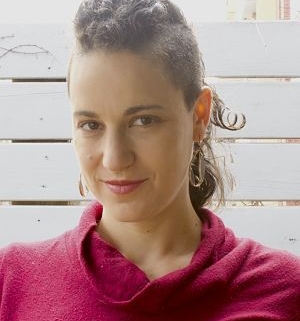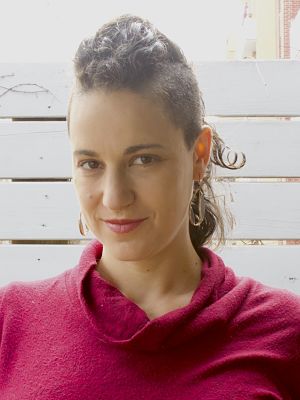Shifting Gear
I remember Camp David. Not actually being there, of course. But I remember hearing about it on the news. And I remember Jerusalem, awaking to a new millennium, the feeling that the whole city was rubbed raw, like a skinned knee. Tension was building everywhere, and with it, the blood pressure of the entire population was steadily rising. Everywhere a hum-buzz-whisper. On the streets, in the corner stores, in the dry, desert air that mixed with exhaust fumes to hang low over our busy streets.
My dad drove my sisters and I to school every morning during those first years of the new century. I had been taking public buses alone for years, but this year my wings were clipped. Transportation had become too risky. Even walking down the sidewalk was too risky, sometimes. There would be five suicide bombings in Israel in the year 2000—rising sharply to forty the following year. In response, my parents had bought a second used car, just like most other parents who could afford it, and they took us everywhere in the interminable, choked traffic. Many other Israelis had stopped taking buses, too, and so there we all sat, unified in our exasperation with the endless lines of cars. My dad shifted from first to second gear, then back again. Time stood still.
We chatted sparsely as we crawled along, taking part of this eternal human centipede, offering opinions on school and politics and music. We listened to whatever pop music was on the only radio station that came through clearly and, of course, the news report every thirty minutes. The DJs spinning Will Smith’s “Willenium” are all soldiers; it’s an army-run radio station. Mostly, my dad is waiting for the news to give him a short reprieve from the crap I like to listen to.
On this October morning, I’m in the front seat, applying thick black and silver eye makeup and cultivating my bad attitude for homeroom. My older sister is in the back seat, sulking because I got to sit upfront and dreading school. Ours is a religious high school, complete with an hour of prayers every morning and afternoon. She was already a passionate atheist. Her opinions on religion were not well received by the administration, to say the least.
The clock hits 7:30, the DJ cuts the tunes in favor of the news, and the station jingle plays, echoey and electronic. Then three beeps—two short and one long—pierce the silence.
“Nu, what’s the bad news today?” my dad asks, turning the volume dial up.
A deep, male voice comes on, stating, “The time is 7:30. And now the news, from Kol Israel. President Clinton made a statement this morning, strongly condemning the violence on both sides and encouraging PLO leader Yasser Arafat and Prime Minister Ehud Barak to reconsider the terms of the Camp David negotiations as a step on the path to peace.”
There is no savior, no prophet with our best intentions at heart. There are only fallible humans with personal interests in mind, eyes glinting as they jockey for the best position in the rat race, cutting each other off in their attempt to get ahead.
My dad has gotten quiet.
“An aide to the Prime Minister has said that there is a great deal of optimism about ending the violence. Demonstrations and violent clashes continue in the West Bank and Jerusalem.”
My dad shifts from neutral back into first and eases the car forward a few meters.
The announcer lists the main traffic jams, signs off, and Eminem comes on with Dr. Dre. I was hoping for Madonna’s new single, “Ray of Light.”
The radio dial clicks shut as my dad seethes, “What is that?” I guess the combination of traffic, war, and hip-hop were too much for him that morning. My dad is more of a Beatles fan. Call it a generational gap.
A thick silence descends on the car. The atmosphere in the car is tinted burnt orange by my dad’s frustration. I gaze out the window of our champagne colored Mazda, taking in the road and buildings. Trying not to tick him off any more.
I notice that, incidentally, the road we’re on used to be the border between Israel and Jordan, from 1949 until 1967, when the Israeli army conquered huge swaths of territories in East Jerusalem and the West Bank. We’d learned about it in history class. There was a wall right here where our tire tread grasps the asphalt and drags us forwards. Barbed wire adorned the top and round guard towers were set, like jewels in a concrete chain, dotting the landscape for as far as you could see. All this was before I was born, but it’s obvious even today. On either side of us, the buildings are pock-marked with bullet holes. On the east side, all the store signs are in Arabic. On the west, they’re all in Hebrew. We don’t turn eastward on this morning. We never do.
My dad breaks the stillness, stirring me from my haze.
“You know…,” his voice trails off as he navigates the lanes. Someone cuts us off. He beeps, shifts back into neutral.
“What?” I asked with extra grumpiness.
“I don’t think Arafat actually has the power to stop it anymore.”
“What do you mean?” I glance at him, confused. His face is tired and serious and sad.
“I think he had control at first,” he goes on, “that he was allowing the attacks to continue, to put pressure on Israel for a good deal. But it might be out of his hands now. It might be out of everyone’s hands now. It might have gone too far.”
This wasn’t the first time I’d thought about the violence. We all thought about it constantly. In the coming years, there would be so many, too many close calls. No one would be left untouched by the grief on both sides. And all of this searing pain would culminate in the Wall, a scar across the Judean desert, an eight-meter-tall concrete testament to this time in our lives standing like a hatchet blade in the dunes that bleeds suffering on all sides. I can still see it from my parent’s backyard.
I’m sure my dad doesn’t remember this conversation. It wasn’t a special day. But to me, it was a turning point. This was the first time I understood that maybe no one was in charge. I’d always assumed that the adults would fix this, find a plan soon to stop the hurting and the deaths. Naïve, maybe. Childish, certainly. I left a part of my innocence, splattered like roadkill, behind us that morning.
The truth sank in. There is no savior, no prophet with our best intentions at heart. There are only fallible humans with personal interests in mind, eyes glinting as they jockey for the best position in the rat race, cutting each other off in their attempt to get ahead. The future is in our hands. No one else is coming to put out the fire.
On that slate-gray morning in Jerusalem, I waited a few moments of silence longer and clicked the radio back on. Pop-rock nonsense surrounded us, three weary pilgrims in a ’93 Mazda. We drove on, past the Muslim quarter, then the Jewish quarter, gliding past the Jaffa gate. We fought our way through downtown and the German Colony, whose main street is called the Valley of Ghosts. On either side of us, rows of homes, once owned by Arab families, ‘til they were taken in a war. Israeli Jews now live and love and raise children in those houses. So many fates intertwined; the thicket is so thick here. Turning right at the street named for Rachel, our Matriarch, my dad pulled over and let us climb out. We waved goodbye, blew kisses, and headed inside, just in time to join our classmates for a morning prayer.






